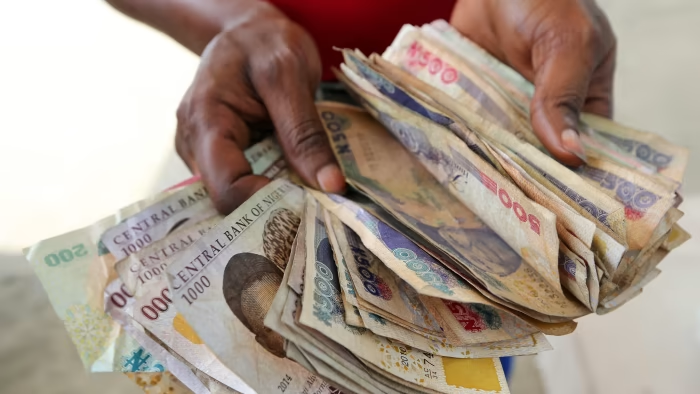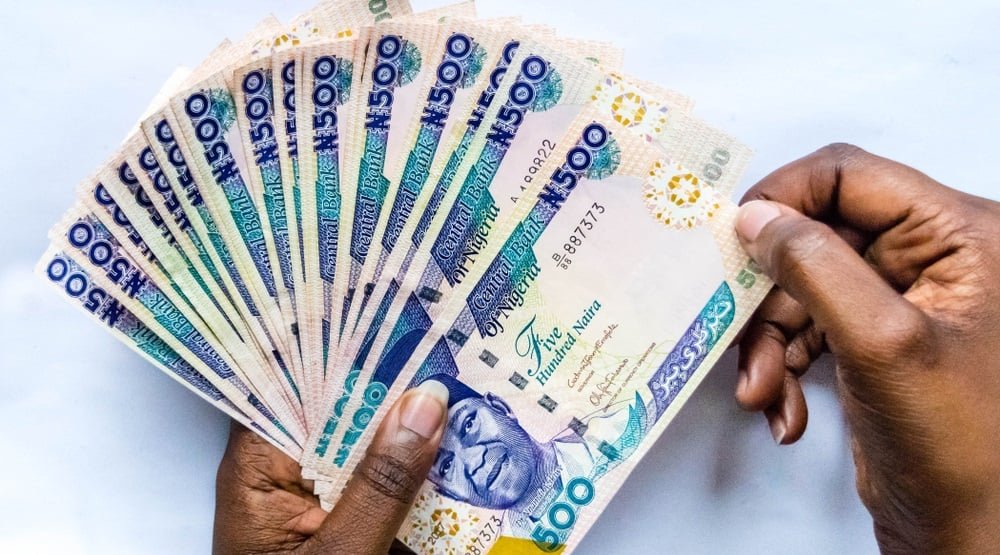The Theobarth Grant has, for several years, been a hot topic among Nigerians who signed up with the hope of financial relief and empowerment. Introduced as a foundation-led initiative that promised to provide financial support through registered NGOs, the grant was seen as a lifeline for thousands struggling in tough economic conditions. However, despite countless promises of disbursement, shifting deadlines, and repeated updates, many applicants are left frustrated and questioning its authenticity.
By early 2025, the conversation around the Theobarth Grant is no longer just about “when will disbursement start?” but rather “is this grant even real, or is it another elaborate scam?” People who invested their hopes and even money into the process now want nothing more than to either receive their funds or at least recover the registration fees they paid. This article takes an in-depth look at the Theobarth Grant latest update, the disbursement news that has surfaced, the truth about its payment promises, and whether the scheme can still be trusted.
What is the Theobarth Grant?
To understand why the Theobarth Grant disbursement news has generated so much attention, it is important to trace back to how it all started. The grant was introduced as a program designed to empower Nigerians by distributing large sums of money through partnering NGOs. Applicants were told they could benefit from these funds after completing a registration process, which, in many cases, required them to pay fees ranging from small administrative charges to higher sums depending on the NGO or cluster they registered with.
The scheme promised that each verified beneficiary would receive financial support, often with figures as high as several hundred thousand naira per individual, which was being circulated on social media and within applicant groups. For many Nigerians battling unemployment, rising inflation, and a generally tough economy, the promise of such financial relief was too good to ignore.
Initially, the grant enjoyed massive popularity because it was positioned as a foundation-backed initiative supposedly working in partnership with NGOs across the country. The narrative suggested that international organisations and stakeholders were funding the grant to help reduce poverty levels in Nigeria. However, as time went by, the inconsistencies, missed deadlines, and endless excuses began to paint a different picture.

PEOPLE ALSO READ
Everything to Know About The Top Loan Requirements in Dubai Islamic Bank
What Are The Top Loan Requirements in China Bank?
Everything You Must Know Before Applying
Everything To Know About CHFA Loan Requirements
Theobarth Grant Latest Update in 2025
As of early 2025, new information began to circulate regarding Theobarth Grant’s latest update. It was reported that funds had finally been released to collaborating NGOs, but under strict conditions. One of the most talked-about announcements was the directive that all NGOs must sign a fresh Memorandum of Understanding (MOU) by February 4, 2025. This agreement was meant to ensure transparency and accountability in the disbursement process.
According to the information shared with applicants, NGOs that complied with the MOU were expected to start paying their verified members within 48 hours of receiving the funds. On paper, this sounded like the long-awaited breakthrough, as many believed it would finally mark the beginning of payments to beneficiaries.
However, reality painted a different story. Reports showed that some NGOs either failed to meet the signing requirements or did not follow through on the commitment. This resulted in further delays, leaving many applicants stranded and disappointed yet again. By mid-February 2025, there were still no verifiable records of payments being made to beneficiaries, despite assurances that disbursement was “around the corner.”
This repeated cycle of promises and missed timelines has fueled more scepticism. Instead of restoring confidence, the 2025 updates have deepened doubts about whether the grant is legitimate or just another fraudulent scheme playing on the hopes of Nigerians.
Theobarth Grant Disbursement News
The Theobarth Grant disbursement news has been one of the most confusing aspects of the entire situation. Social media groups and WhatsApp platforms dedicated to the grant are often filled with claims of people receiving credit alerts. Screenshots of supposed alerts have been shared widely, but on closer examination, there is little to no credible evidence confirming that actual beneficiaries have been paid.
In December 2024, the foundation assured the public that disbursements would take place before Christmas. When this deadline passed without any payments, another date was fixed for December 31, 2024. Again, nothing happened. These constant postponements have become a familiar pattern, leaving beneficiaries exhausted and increasingly doubtful.
As of February 2025, despite fresh assurances and the signing of new MOUs, there have been no verified instances of payments reaching beneficiaries’ bank accounts. The rumours of alerts appear to be tactics used either to maintain hope among applicants or to buy more time. In the absence of hard evidence, the growing consensus is that these so-called disbursement updates are unreliable.
For many, this situation has reached a breaking point. People who once believed in the foundation are now beginning to demand accountability, asking either for their money back or a clear explanation of why the disbursement never materialised.
Theobarth Grant Payment Update – Truth or Scam?
When analysing the Theobarth Grant payment update, one of the major red flags is the requirement for applicants to pay registration or subscription fees. In legitimate grant processes worldwide, applicants are never asked to pay money before accessing funds. Instead, genuine grants are funded by governments, organisations, or philanthropists who allocate money to support individuals or communities without expecting upfront payments.
The fact that Theobarth Grant beneficiaries were required to pay money to join clusters or register with NGOs is a clear sign of fraudulent activity. Investigations into similar schemes in the past have shown that they operate as scams, using the promise of large payouts to lure people into paying registration fees. Once enough people have paid, the organisers either disappear or continue shifting disbursement dates indefinitely.
Another issue that undermines the credibility of the Theobarth Grant is the constant change of deadlines. From early promises in 2023 and 2024 to the failed disbursement deadlines in December 2024, and now the February 2025 MOU requirement, it has been nothing but a cycle of broken promises.
With no verifiable proof of actual payments made to beneficiaries, the conclusion for many analysts is that the Theobarth Grant is not genuine. While some still hold on to hope, the evidence points strongly towards it being a fraudulent scheme.
Why Many Still Believe in the Theobarth Grant
Despite overwhelming signs that the grant may not be legitimate, a large number of Nigerians still believe in the scheme. This is largely due to economic hardship and desperation. With unemployment at alarming levels and inflation reducing the value of earnings, the idea of receiving financial support, even if delayed, remains attractive.
Additionally, rumours of people receiving alerts, whether true or not, help to keep hope alive among applicants. Many believe that if a few people have been paid, their turn will come soon. This psychological pull is one of the reasons fraudulent schemes often thrive, as people cling to the possibility of financial relief.
Another reason for continued belief in the Theobarth Grant is the authority with which its organisers make announcements. By setting official deadlines, requiring MOUs, and involving NGOs, the scheme appears more structured and professional than typical scams. However, structure does not equal legitimacy, and in this case, it seems to be more about appearances than substance.
The Reality of Theobarth Grant
Looking at the facts surrounding the Theobarth Grant latest update, it is difficult to call it legitimate. The repeated shifting of deadlines, the absence of verifiable disbursements, and the requirement for registration fees all point towards a scam.
Legitimate grants are transparent, verifiable, and do not require applicants to pay up front. They also follow through on their promises by disbursing funds within the timeframes they announce. In contrast, Theobarth Grant has consistently failed to meet its own deadlines and has provided no evidence of payments to actual beneficiaries.
The conclusion for many observers is that the Theobarth Grant is a fraudulent scheme that has exploited the hopes of Nigerians for too long. While some still hold on to hope, the responsible advice is to treat the scheme as a scam until proven otherwise.
READ MORE
Everything To Know About FHA vs Conventional Loan
The Complete Guide to Best Egg Loan Requirements
What Applicants Should Do Now
For those who have already registered and paid fees, the situation is frustrating. Unfortunately, the chances of receiving any funds from the Theobarth Grant appear slim. Applicants are advised to stop making further payments to NGOs or clusters promising quick disbursement. Any additional money sent only increases losses.
It is also important to be cautious about similar schemes in the future. Scammers often exploit difficult economic conditions by promising grants, loans, or empowerment programs that sound too good to be true. The rule of thumb is simple: if a grant requires you to pay money up front, it is most likely a scam.
Instead of waiting endlessly for the Theobarth Grant, applicants should focus on verified opportunities such as government empowerment programs, small business loans, or legitimate non-profit grants. These may not promise the huge sums Theobarth advertised, but they are real and achievable.
Conclusion
The Theobarth Grant disbursement news has been a rollercoaster of promises, deadlines, and disappointments. From December 2024’s failed assurances to February 2025’s fresh MOU requirements, nothing concrete has materialised. Despite rumours of alerts and updates, no credible evidence exists that any beneficiary has received payment.
The Theobarth Grant payment update paints a troubling picture. The request for registration fees, the repeated shifting of deadlines, and the absence of transparency all indicate that the scheme is fraudulent. While many Nigerians continue to hope for financial relief through this grant, the reality is that the signs point strongly toward a scam.
At the end of the day, the question, Theobarth Grant, scam or real?—is best answered by the evidence. And so far, the evidence suggests it is nothing more than another fraudulent scheme that has preyed on the hopes of Nigerians for too long.
